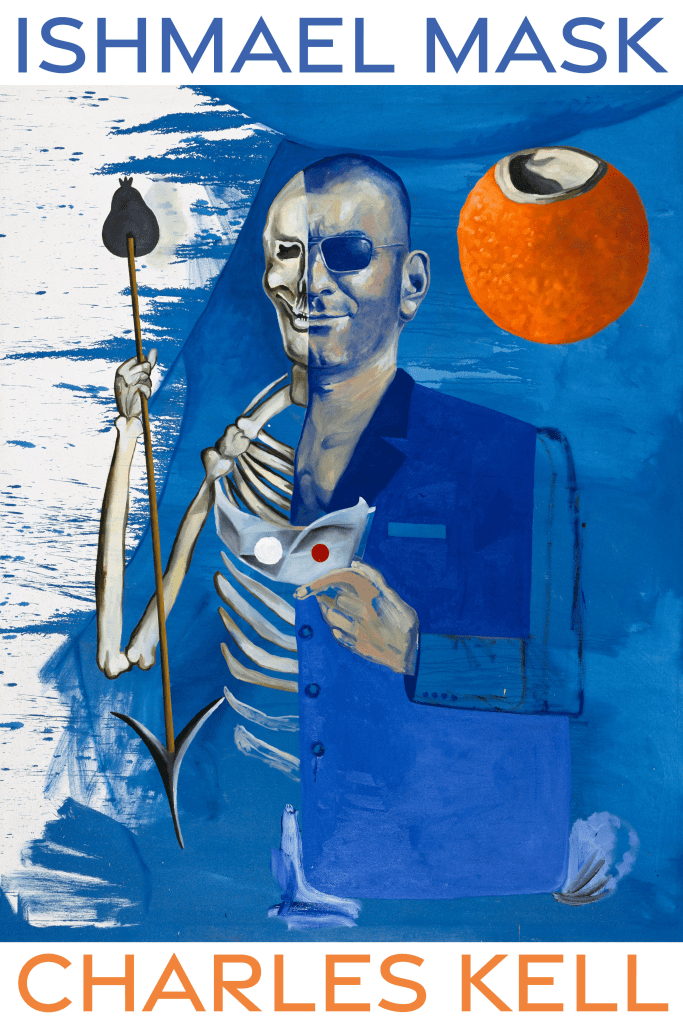Ishmael Mask, now available from Autumn House Press.

The poet must have a Nietzschean ambition to see beyond the mirror, beyond the absurd mask of consciousness. Ishmael Mask speaks to this primitive damage, the inescapable futility underlying life and depicted in literary fiction. Consider “The Green Hat” sequence, a masterpiece of metaphysical anxiety. The flickering periphery is a warning, and yet here are the poverties of memory, addiction, and imprisonment, recanted by Charles Kell in Melvillian drag. And yet, these obsessions—like Pierre’s—under Kell’s skillful pressure, offer surprising musical comforts. Tender, gothic, and wonderfully catastrophic, Kell’s exhilarating poems flicker with both omen and mystery. Their dangers are sexy, lyrically precise, and elegiac. Their disquietude will leave you breathless.
—Miguel Murphy
Poetry is rarely so vivid an art of face-to-face as it is in Charles Kell’s Ishmael Mask: the faces of the dead, the faces in the mirror, the faces of the lover, blurred by presence and distance. These poems, shadowed by Melville and Kafka, are also a history of one poet’s encounters with the inscrutable relentlessness of fate and the inevitable privacy of suffering. “One can draw loss, draw frost, without anyone knowing,” he writes. Yet knowing here becomes the reader’s privilege, an unveiling slowly emerging through the voice of his haunting, indelible lines.
—Susan Stewart
How does one hammer memory onto the page without nails or bullets? Charles Kell wails his own mnemonic siren through the literary specter of Herman Melville’s Pierre, Kafka, etc., and we wail with him like a stone who can easily weep, but we don’t. There is a touchless erection in this book and drowning and death and suicide and a “rat runs in small circles where the green hat used to lie” and may suggest life and pain and existential revisitations have cast shadows that are bigger than meadows. Perhaps in this collection Charles Kell is yelling from the top of his lungs, but all we could hear is wind and January or “black, red, green spiral of smoke.” Or perhaps Kell and his poetry are a cellar we all wish we could descend into to grab mason jars of beauty and grace in times of existential hunger and famine.
—Vi Khi Nao
We Americans are all imaginary orphans, forever seeking a new name, a new carapace, and the further adventure. “Call Me Ishmael” is thus a motto more proper to our republic, and more forward-looking, than “E Pluribus Unum.” In Ishmael Mask, Charles Kell has parsed the fossil record of our orphancy in beautiful and unguarded detail; he has adventured much and withheld nothing. For those who come to poetry in search of a credible future, Kell will prove to be a true and unfailingly honest companion.
—Donald Revell